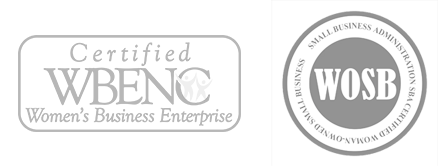TOO MANY SALES PROFESSIONALS work tirelessly to land sales meetings, only to lose the sale in the end through a series of poorly executed follow-up calls. It’s easy to mindlessly make follow-up calls checking on the status of a prospect’s decision to buy your products or services. Most salespeople typically start out by saying, “I’m just calling to see if you’ve made a decision to….” Nearly all of us have received an uninspired follow-up call like this before. The message unintentionally delivered is that you need the prospect more than the prospect needs you; you’re looking for any business, not just this prospect’s business; and you’re not terribly motivated to earn that business in the first place. What constitutes a strong follow-up call? It begins with how well you defined the next step in your last meeting. Never leave a sales meeting without gaining agreement on a firm next step, like a date and time when you’ll talk again. Assuming you’ve done this, you should be calling at a time that has already been set aside by your prospect, eliminating the need to ask for his time, which could open up an opportunity for a stall tactic. Begin by reminding your prospect of a point of connection, such as a hobby or common acquaintance you share. When you’re ready to transition to business, summarize the result of your last meeting. Recap what your prospect liked about your proposal, what objections were posed, and how you resolved those concerns. Explain that not every prospect is a good fit for your company, which should be true, and outline why you believe this partnership is a good fit. Next, offer a new piece of information to demonstrate your motivation to partner together. It could be some additional research you uncovered that he may find helpful, or an extra added-value element that you want to include in your original project estimate. Ask your prospect if he has any additional questions, then move to an assumptive close. This might mean, depending upon your sales process, outlining what the first two weeks will look like after executing contracts. You’re assuming the prospect has already made the decision to move forward, jumping straight to next steps. You might even suggest meeting the following day to review and sign contracts. Consider narrowing down the timing choices by asking, “Would morning or afternoon tomorrow work better for you?” If the prospect stalls, don’t panic. Just ask follow-up questions until you have a clear understanding of the real objection. Consider saying, “Tell me more about your hesitation to move forward.” If you can, sufficiently overcome the objection then attempt to close again. The key to a good follow-up call is getting it scheduled before leaving the prior meeting, and then planning out a road map for how the next conversation will go. From there, you just need to drive it home.
Recent Posts
- The Confidence Gap: How to Inspire Your Team to Own the Numbers
- Hire, Fire, and Reward Based on Outcomes: The Only Way to Build a Growth Team
- Why Weekly Optimization Separates Winners from Losers
- The Domino Effect: What Happens When You Reposition Your Brand
- Why Leaders Must Demand Accountability for MROI Projections
Related Posts
 Marketing StrategyOtherSales
Marketing StrategyOtherSales
One Team, One Dream
TEAMWORK: every highly successful team gets just how important it is to propelling an organization…
RedRover Sales & MarketingApril 23, 2024
 Marketing StrategyOtherSales
Marketing StrategyOtherSales
Marking Your Territory
I BET you didn’t think your dog could teach you anything about marketing. I’ve learned…
RedRover Sales & MarketingApril 23, 2024
 OtherSales
OtherSales
The Brain Bone’s Attached to the Wallet Bone
LOOKING AT YOUR BRAIN Neuromarketers can predict how you’ll respond to advertising. While it may…
RedRover Sales & MarketingApril 23, 2024




